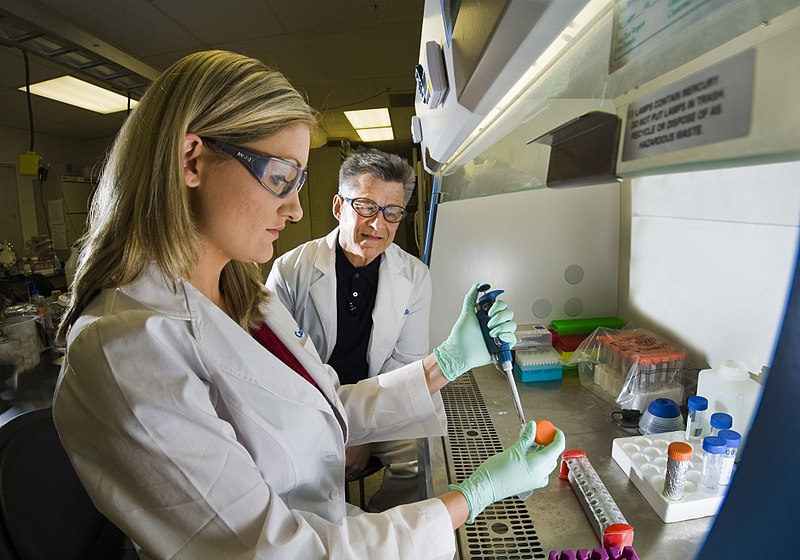Scientists Find New Way To Treat Mesothelioma

Scientists Find New Way To Treat Mesothelioma
Scientists think they can find new ways to treat mesothelioma by looking at its genetic makeup. The genetic changes and interactions between cancer cells and their environment could hold the key to new therapies.
This is the hope of a group of scientists from Italy who published their ideas in the International Journal of Molecular Sciences.
Mesothelioma Tumor and Cancer Genetics
Malignant pleural mesothelioma is a cancer caused by exposure to asbestos. One reason it is hard to treat is because it doesn’t have specific genetic targets like other types of cancer.
The area around the mesothelioma tumor also makes it hard to treat. The environment around the tumor affects how the tumor behaves and can cause it to spread to other parts of the body. In advanced cases, the cancer can invade nearby organs like the lungs and chest wall.
Scientists need to understand more about how the cancer genetics and how it interacts with its surroundings. This will help to find better ways to treat mesothelioma and help patients.
Genetic Factors Play a Role
Some studies have found that there could be genetic factors that affect the development of mesothelioma in people exposed to asbestos. The BRCA1-associated protein gene (BAP1) is one gene that could be associated with developing mesothelioma. Mutations or changes in this gene can make people more likely to develop mesothelioma after exposure to asbestos.
If scientists can identify genetic factors in people with symptoms of mesothelioma, they could reach a diagnosis more quickly. They could also figure out what type of mesothelioma a person has, which would help doctors to pick the most effective therapies for treatment.
One area of interest is how low oxygen levels affect the cancer cells and their genes. This is called hypoxia. Hypoxia can help cancer cells to grow and spread by changing how the mesothelioma genes are expressed.
Scientists are also looking at specific molecules called transcripts and miRNA. Molecules called microvesicles and exosomes may be involved in the development and growth of the cancer.
These molecules are important in understanding the disease. They may also offer potential targets for new therapies that could be developed for clinical use in the future.
Source
Stella GM, Marchiò C, Bari E, et al. The Genes-Stemness-Secretome Interplay in Malignant Pleural Mesothelioma: Molecular Dynamics and Clinical Hints. Int J Mol Sci. 2023;24(4):3496. Published 2023 Feb 9. doi:10.3390/ijms24043496. https://www.ncbi.nlm.nih.gov/pmc/articles/PMC9963101/#B66-ijms-24-03496





